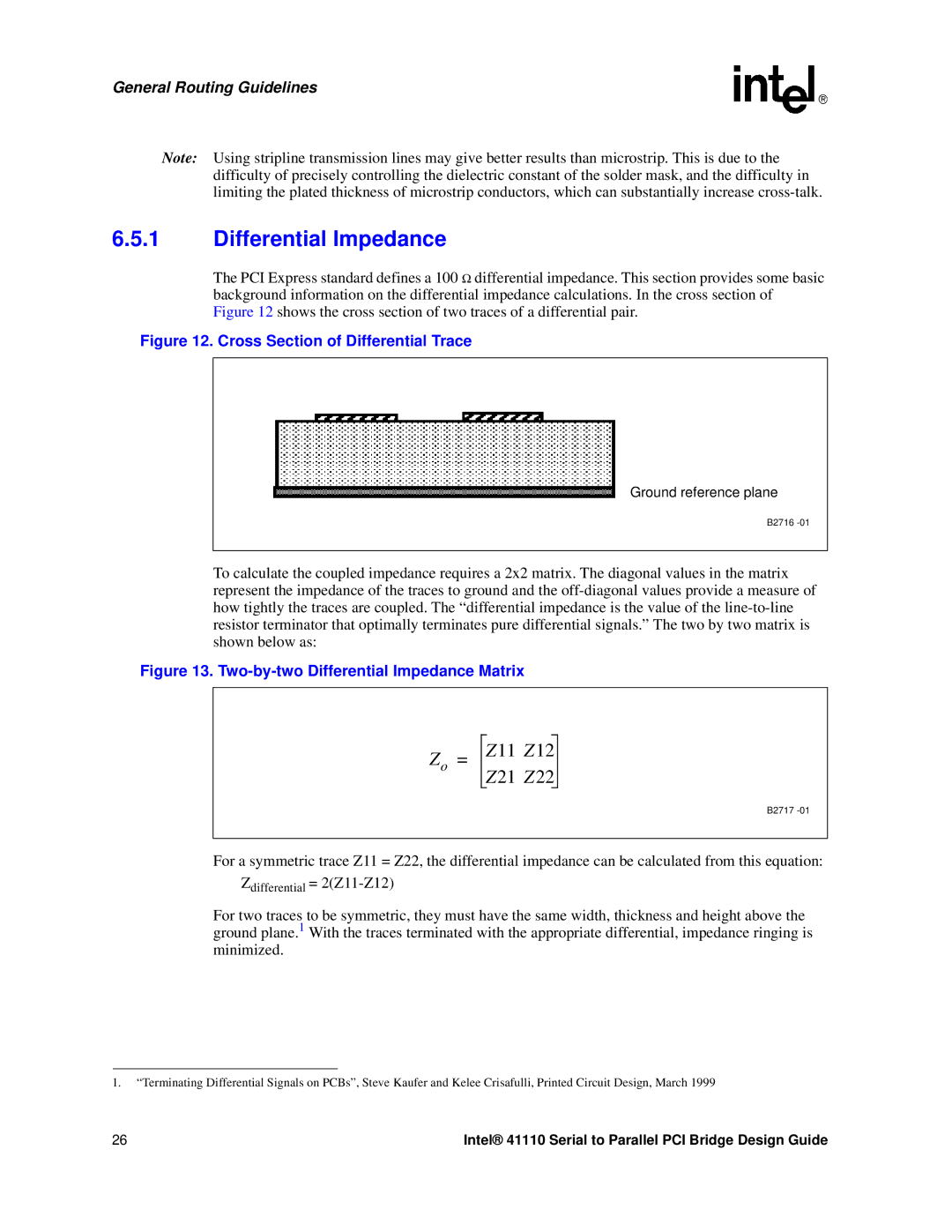
General Routing Guidelines
Note: Using stripline transmission lines may give better results than microstrip. This is due to the difficulty of precisely controlling the dielectric constant of the solder mask, and the difficulty in limiting the plated thickness of microstrip conductors, which can substantially increase
6.5.1Differential Impedance
The PCI Express standard defines a 100 Ω differential impedance. This section provides some basic background information on the differential impedance calculations. In the cross section of Figure 12 shows the cross section of two traces of a differential pair.
Figure 12. Cross Section of Differential Trace
Ground reference plane
B2716
To calculate the coupled impedance requires a 2x2 matrix. The diagonal values in the matrix represent the impedance of the traces to ground and the
Figure 13. Two-by-two Differential Impedance Matrix
Zo =
Z11 Z12
Z21 Z22
B2717
For a symmetric trace Z11 = Z22, the differential impedance can be calculated from this equation: Zdifferential =
For two traces to be symmetric, they must have the same width, thickness and height above the ground plane.1 With the traces terminated with the appropriate differential, impedance ringing is minimized.
1.“Terminating Differential Signals on PCBs”, Steve Kaufer and Kelee Crisafulli, Printed Circuit Design, March 1999
26 | Intel® 41110 Serial to Parallel PCI Bridge Design Guide |
